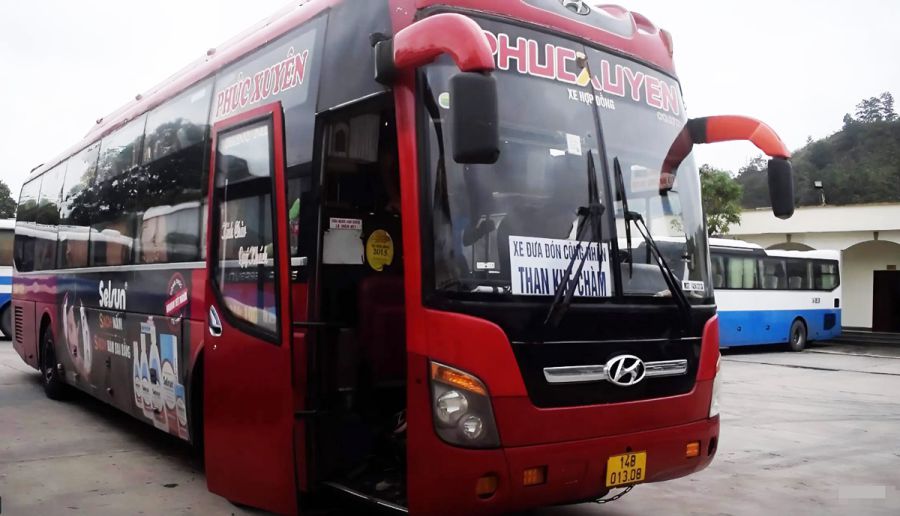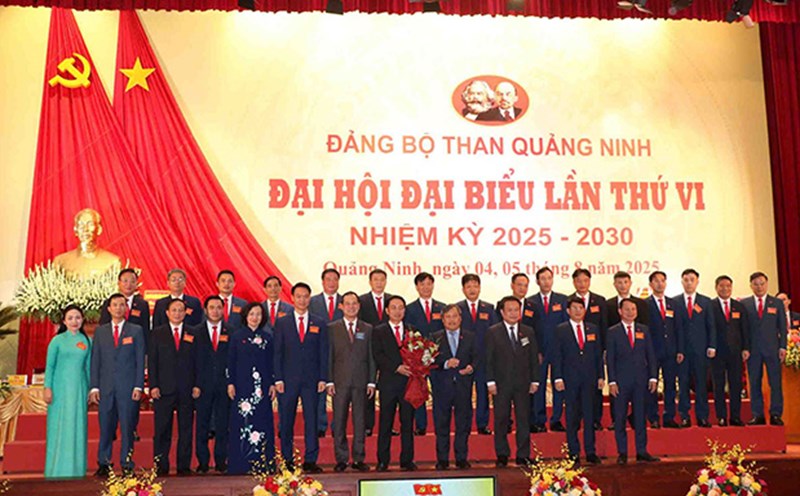Vietnam Coal and Mineral Industries College - the main unit recruited by the Vietnam National Coal and Mineral Industries Group (TKV) to train miners for the group's coal mining companies - has just coordinated with the Party Committee, People's Committee of Binh Lieu commune, Quang Ninh province and Khe Cham Coal Company - TKV to organize a conference to sign the Regulations on coordination of vocational training and job creation for local workers in the period of 2025 - 2030.
The conference was attended by Mr. Nguyen The Minh - Member of the Provincial Party Committee, Secretary of the Party Committee of Binh Lieu Commune; Mr. Nguyen Thanh Trung - Secretary of the Party Committee, Principal of the Vietnam Coal and Mineral Industries College; Mr. Vu Quang Tuyen - Deputy Secretary of the Party Committee of Khe Cham Coal Company - TKV; and representatives of the leaders of the commune, villages and related units.
In the period of 2020 - 2025, the coordination program between the school and Binh Lieu commune has achieved outstanding results: 321 local workers were recruited to vocational training, 289 graduates, 100% have stable jobs in coal enterprises.
The whole commune currently has nearly 300 workers working at TKV, with an average income of 300 - 350 million VND/year, contributing to reducing the poverty rate to 1.47%, raising the rate of trained workers to 85%.

According to the Coordination Regulations for the period 2025 - 2030, each year recruit 60 - 70 vocational training workers to work at units under TKV; at the same time, continue to promote propaganda and admission consulting, ensuring the rights and welfare of learners and workers.
In the discussion, the village Party cell secretaries hoped that schools and businesses would continue to pay attention to propaganda work, creating conditions for local children to learn a trade and have stable jobs; at the same time, propose to maintain direct consultation and career guidance activities in the villages, increase means of transporting workers, supplement welfare policies for workers working away from home and better care for the material and spiritual life of workers.
Previously, in Luc Hon commune, Quang Ninh province, Vietnam Coal and Mineral Industries College coordinated with Luc Hon commune and Ha Long Coal Company - TKV to organize a conference to sign the Regulations on coordination on vocational training and job creation for the period 2025 - 2030.
The event is an important milestone, continuing the success of the 2020 - 2025 coordination period, affirming the practical role of the school in accompanying the locality in sending workers from the highlands to work stably at coal units.
In the period of 2020 - 2025, 321 workers of Luc Hon commune have been recruited, trained in vocational skills and assigned to work in coal industry units. In particular, many villages, such as Phieng Sap, Ngan Vang Tren, Ban pat... have exceeded the assigned targets, becoming typical examples in coordination work. According to the Coordination Regulations between the Luc Hon Commune Party Committee and the School Party Committee, Ha Long Coal Company strives to introduce each year 60-70 workers to study and work at the Vietnam National Coal - Mineral Industries Group.
The recruitment of young people from mountainous communes of Quang Ninh to work as miners at TKV's coal companies in Quang Ninh has been implemented for many years. Currently, every day, there are dozens of sleeper buses carrying miners from communes in the former Eastern districts of Quang Ninh, such as: Binh Lieu, Ba Che, Tien Yen, Dam Ha, Hai Ha... to coal companies, such as: Khe Cham, Mong Duong, Ha Long... and returning home during the day.
According to the representative of Vietnam National Coal and Mineral Industries College, this not only contributes to solving employment for local people, but also helps coal companies have sustainable and stable resources because they live near their homes and can go home during the day.
Currently, the largest source of miners is still in the Northwestern provinces. Each enrollment trip of the school's staff, staff, and teachers is very difficult, often taking at least half a month to travel in remote villages. However, many students drop out of school halfway; those who work often have little intention of staying in the profession for a long time, but only try to earn a certain amount of capital and then return to their hometown to work elsewhere.











